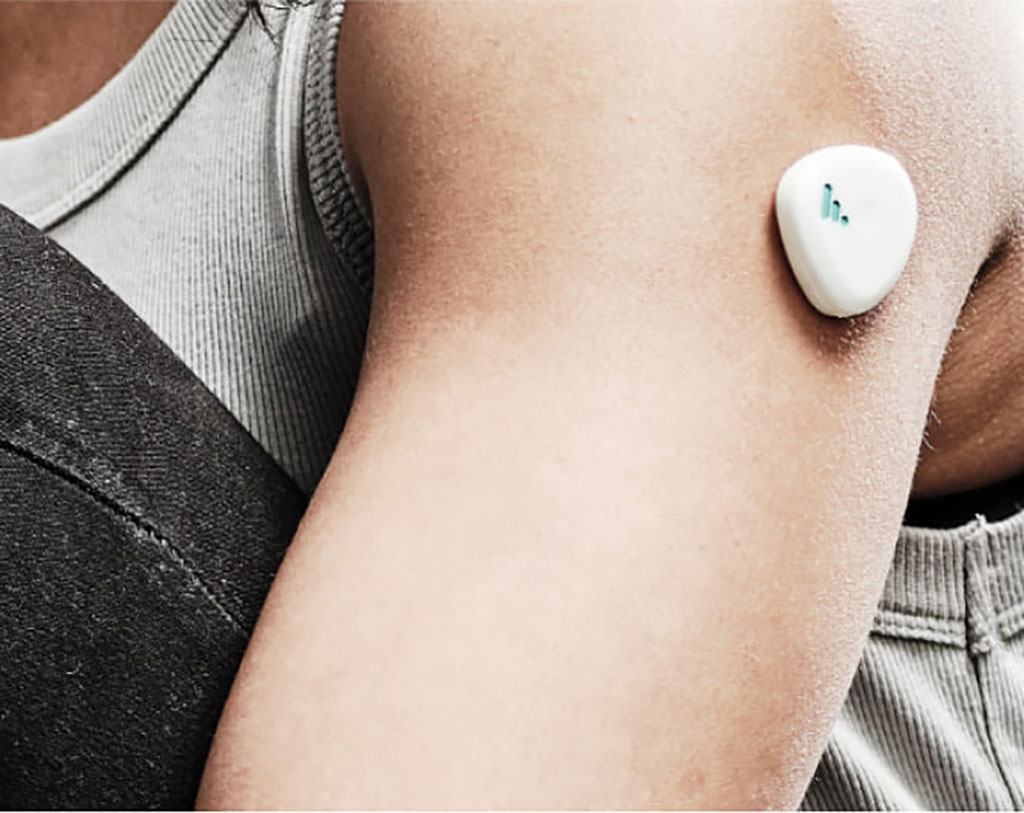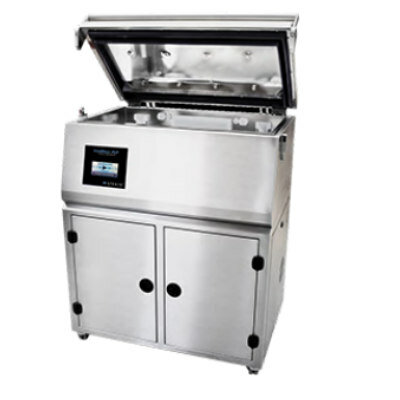Lab-on-a-Patch Enables Continuous and Real-Time Monitoring of Multiple Disease Biomarkers
|
By HospiMedica International staff writers Posted on 08 Jun 2023 |

Advancements in continuous glucose monitors (CGMs) have significantly improved the management of diabetes, however, they come with a major shortcoming: CGMs are incapable of measuring any diagnostic target other than glucose. Now, DNA-based sensing has emerged as a breakthrough technology that overcomes this limitation with its ability to enable continuous and real-time measurements of any diagnostic target.
Nutromics’ (Melbourne, Australia) is developing a "lab-in-a-patch" that harnesses DNA sensor technology to track various targets such as disease biomarkers and difficult-to-administer drugs within the human body. Currently undergoing in-human trial testing, Nutromics' DNA-based sensor platform is poised to bring about a significant shift in diagnostic methods. By integrating multiple DNA-based sensors with minimally invasive microneedles, the platform allows for continual and real-time tracking of various vital targets. With its aptamer platform, Nutromics stands to improve the prognosis for millions of patients in clinically critical conditions. By offering medical practitioners the ability to continuously monitor a wide array of analytes that presently cannot be analyzed in real-time, Nutromics’ "lab-in-a-patch could become a game changer in various clinical situations.
The initial product to come out from Nutromics’ stable is a wearable device equipped with a vancomycin sensor. Vancomycin, a potent antibiotic used for treating severe infections like sepsis, presents a dosage challenge due to its narrow therapeutic window, high toxicity, and limited patient blood level data available to doctors. DNA-based sensors can overcome these hurdles by providing continuous, real-time information on vancomycin concentration levels, enabling doctors to calibrate the antibiotic dosage to maintain the therapeutic range and avoid toxicity. Additionally, DNA-based sensors can significantly influence heart attack diagnosis. Troponin, a protein that markedly increases in the bloodstream upon heart muscle damage (like during a heart attack), can be continuously monitored to provide early trend data. This could drastically reduce heart attack diagnosis time to mere minutes, ultimately saving lives. Nutromics envisions a future where DNA-based biosensors extend beyond acute hospital settings to point-of-care, general lab testing, and even consumer use for the prevention of disease among healthy individuals.
Related Links:
Nutromics
Latest Critical Care News
- Novel Cannula Delivery System Enables Targeted Delivery of Imaging Agents and Drugs
- Ingestible Smart Capsule for Chemical Sensing in the Gut Moves Closer to Market
- Novel Intrabronchial Method Delivers Cell Therapies in Critically Ill Patients on External Lung Support
- Generative AI Technology Detects Heart Disease Earlier Than Conventional Methods
- Wearable Technology Predicts Cardiovascular Risk by Continuously Monitoring Heart Rate Recovery
- Wearable Health Monitoring Device Measures Gases Emitted from and Absorbed by Skin
- Groundbreaking Technology Rapidly Detects Airborne Influenza Viruses
- Handheld Device Could Transform Heart Disease Screening
- Flexible Semi-Autonomous Robot Could Deliver Medicine Inside Body

- Neurorestorative Treatment Strategies Hold Promise for Most Severe Forms of Epilepsy
- Gene Discovery Could Help Grow New Heart Arteries
- Study Discovers Invisible Transmission of Common Hospital-Associated Infection
- Non-Invasive Neuro-Ophthalmology Techniques Could Detect Brain Tumors Earlier
- Mass Manufactured Nanoparticles to Deliver Cancer Drugs Directly to Tumors
- World’s Smallest Pacemaker Fits Inside Syringe Tip

- AI-Powered, Internet-Connected Medical Devices to Revolutionize Healthcare, Finds Study
Channels
Surgical Techniques
view channel
Pioneering Sutureless Coronary Bypass Technology to Eliminate Open-Chest Procedures
In patients with coronary artery disease, certain blood vessels may be narrowed or blocked, requiring a stent or a bypass (also known as diversion) to restore blood flow to the heart. Bypass surgeries... Read more
Intravascular Imaging for Guiding Stent Implantation Ensures Safer Stenting Procedures
Patients diagnosed with coronary artery disease, which is caused by plaque accumulation within the arteries leading to chest pain, shortness of breath, and potential heart attacks, frequently undergo percutaneous... Read more
World's First AI Surgical Guidance Platform Allows Surgeons to Measure Success in Real-Time
Surgeons have always faced challenges in measuring their progress toward surgical goals during procedures. Traditionally, obtaining measurements required stepping out of the sterile environment to perform... Read morePatient Care
view channel
Portable Biosensor Platform to Reduce Hospital-Acquired Infections
Approximately 4 million patients in the European Union acquire healthcare-associated infections (HAIs) or nosocomial infections each year, with around 37,000 deaths directly resulting from these infections,... Read moreFirst-Of-Its-Kind Portable Germicidal Light Technology Disinfects High-Touch Clinical Surfaces in Seconds
Reducing healthcare-acquired infections (HAIs) remains a pressing issue within global healthcare systems. In the United States alone, 1.7 million patients contract HAIs annually, leading to approximately... Read more
Surgical Capacity Optimization Solution Helps Hospitals Boost OR Utilization
An innovative solution has the capability to transform surgical capacity utilization by targeting the root cause of surgical block time inefficiencies. Fujitsu Limited’s (Tokyo, Japan) Surgical Capacity... Read more
Game-Changing Innovation in Surgical Instrument Sterilization Significantly Improves OR Throughput
A groundbreaking innovation enables hospitals to significantly improve instrument processing time and throughput in operating rooms (ORs) and sterile processing departments. Turbett Surgical, Inc.... Read moreHealth IT
view channel
Printable Molecule-Selective Nanoparticles Enable Mass Production of Wearable Biosensors
The future of medicine is likely to focus on the personalization of healthcare—understanding exactly what an individual requires and delivering the appropriate combination of nutrients, metabolites, and... Read more
Smartwatches Could Detect Congestive Heart Failure
Diagnosing congestive heart failure (CHF) typically requires expensive and time-consuming imaging techniques like echocardiography, also known as cardiac ultrasound. Previously, detecting CHF by analyzing... Read moreBusiness
view channel
Expanded Collaboration to Transform OR Technology Through AI and Automation
The expansion of an existing collaboration between three leading companies aims to develop artificial intelligence (AI)-driven solutions for smart operating rooms with sophisticated monitoring and automation.... Read more
















